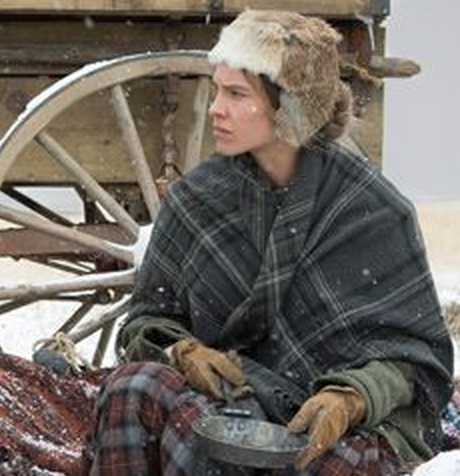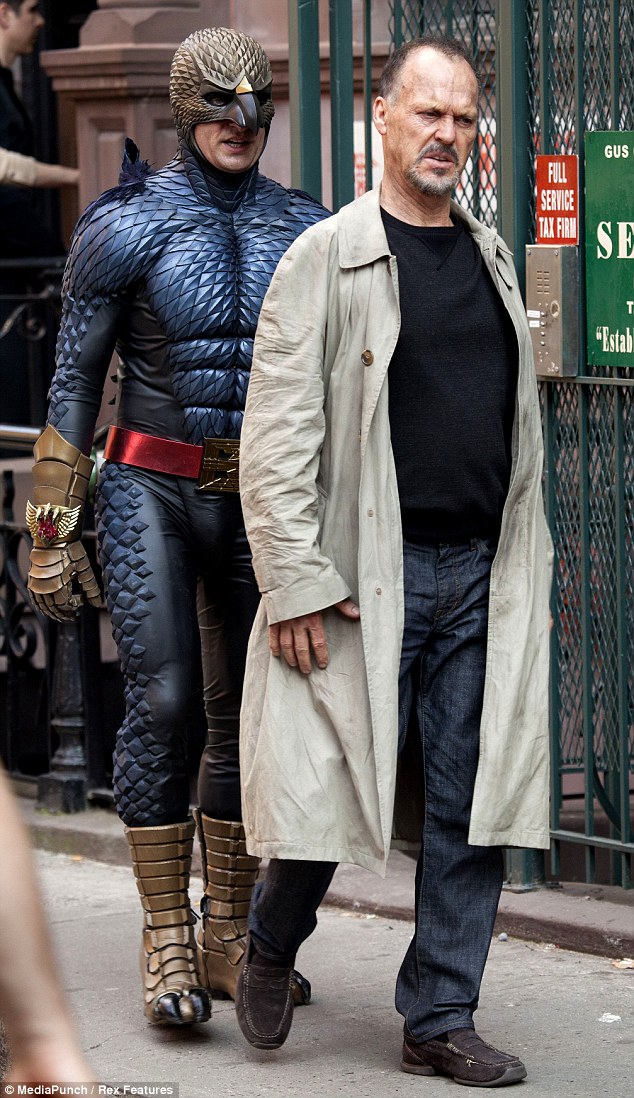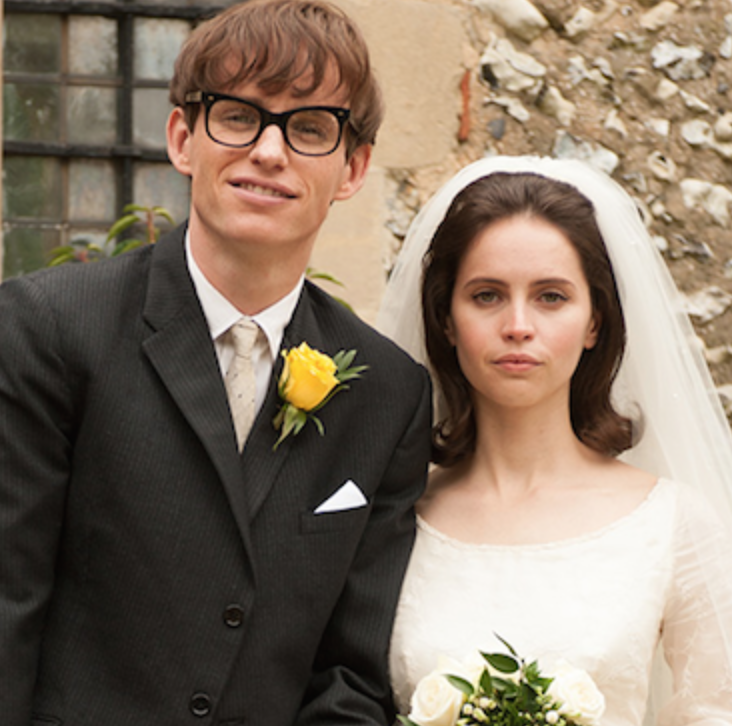 Too plain and too old by 1850s standards to be considered viable marriage material, ex-schoolteacher Mary Bee Cuddy (Hilary Swank) lives by herself in the Nebraska Territory. She tends to her livestock and her land by herself, literally and metaphorically wearing men’s trousers beneath her floor-length dresses. At night, she sings in her unfaltering high voice, accompanying herself silently on a cloth she has embroidered to resemble the piano she played daily when she still lived East. In “The Homesman,” it is a life of making-do.
Too plain and too old by 1850s standards to be considered viable marriage material, ex-schoolteacher Mary Bee Cuddy (Hilary Swank) lives by herself in the Nebraska Territory. She tends to her livestock and her land by herself, literally and metaphorically wearing men’s trousers beneath her floor-length dresses. At night, she sings in her unfaltering high voice, accompanying herself silently on a cloth she has embroidered to resemble the piano she played daily when she still lived East. In “The Homesman,” it is a life of making-do.
But other settlers in the still-mostly unpopulated region are having a more difficult time. The winter has been brutal, and not everyone has survived so far with their sanity intact. Arabella (Grace Gummer) has lost her children to diphtheria and becomes a silent, doll-clutching zombie; Theoline (Miranda Otto) has been so driven to despair that she threw her newborn baby down an outhouse hole; Gro (Sonja Richter) lost her mother in the snow and has since seemed demonically possessed. Unequipped for anything except basic survival, the men of the region determine these three must be sent back East. It falls upon Cuddy to shepherd them home in a locked box wagon and, upon rescuing loutish claim jumper George Briggs (Tommy Lee Jones) from a death by hanging, she forces him to accompany them on the trek. Despite her disapproval of him and her fierce independence, she accepts that she and the other women will not survive the journey by themselves. As it is, the journey through ice storms and hostile Indian territory proves untenable for some of them.
As sere and slow as the region it describes, “The Homesman” refuses to be a likeable film. Yet it is all the more compelling for its lack of accommodation, partly because of the unabashedly feminist perspective it takes on the pitfalls of Manifest Destiny and partly because of its fidelity to its source material, Glendon Swarthout’s eponymous, admirably spare 1988 novel. Continue Reading →


